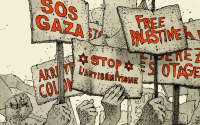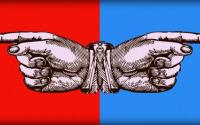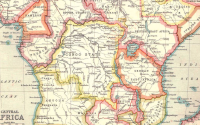7 February 2006Meera Selva
The battle for water in the drought-hit north of Kenya has sparked tribal conflicts leaving dozens dead in recent weeks and the death toll is growing daily, aid agencies have warned.
More aid is needed urgently in drought-hit areas to prevent further violence over scarce water resources and pastures for animals, the charity Oxfam said.
On the arid northern plains, strewn with the decomposing carcasses of cattle, people are preparing for a battle. There are plenty of weapons in this remote corner of the country: home-made spears, bows and arrows, and guns smuggled in from southern Sudan.
And now, there is a motive too. Kenya is suffering a severe drought that has dried up watering holes and turned grazing lands into sand. More than 70 per cent of the region's 260,000 cattle have died, devastating the thousands of nomadic communities that depend on them for wealth, milk and food.
As conditions grow more desperate, cattle herders have begun driving their livestock on to each other's lands and stealing animals to replace the dead ones.
Johnston Chepkwoy, who grazes his remaining animals around Marakwet where the water holes still have a little moisture in them, said: "The Pokot have already stolen our animals, and now they are bringing them to graze on our lands so we are very bitter, and soon we are going to hit back. The elders have been asked to stop the violence, but the young men do not listen - they say, either we fight or we let all our animals die and we starve."
Tribal clashes are not new in northern Kenya, and pastoralist communities frequently raid each other's cattle and fight for grazing lands. Last July, 60 people including 22 children were killed in the village of Turbi as part of a feud between rival tribes.
But there are fears the drought has intensified hostilities. Forty people were killed at Lakamariyang and Kororo in fighting between the Turkana tribes and cattle herders from neighbouring Ethiopia. Four died in similar clashes in the South Kerio valley.
Mr Chepkwoy, who acts as a peace co-ordinator when he is not defending his own livestock, believes the simmering tension will escalate into full-blown violence "within three weeks" if more aid is not provided urgently for the four million people facing food shortages. So far, 40 people are recorded as having died from malnutrition, and aid agencies warn the death toll could rise sharply if fighting escalates.
Gezahegn Kebede, head of Oxfam in Kenya, said: "It's not just the food crisis that is claiming lives in Kenya; the knock-on impact of the crisis risks sparking conflict on a scale that Kenya hasn't seen for almost a decade. We now have a very small window in which to stop this crisis turning into a catastrophe."
Cattle-herding communities from neighbouring Uganda, Sudan, Somalia and Ethiopia have also become embroiled in the battle for water, with all sides taking part in deadly cross-border raids and the Kenyan authorities seem powerless to stop the violence.
"The police are patrolling the area, but what can they do when people say they are starving, and that this is the only way they can survive?" said Mr Chepkwoy. "You don't need policemen in a famine, you need food."
http://news.independent.co.uk/world/africa/article343725.ece






